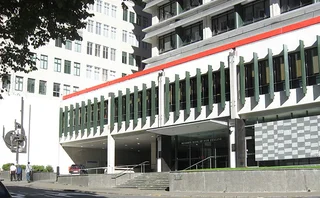
Central banks continue to expand support in face of deflation threat
The Bank of England and the European Central Bank both announced expansions to their monetary stimulus programmes today, warning that low inflation or deflation remained a threat.
The Bank of England kept its overnight rate at 0.5% for the second month running, after dropping it from 1% in March. At the same time, it announced another £50 billion in asset purchases, aimed at increasing the supply of credit and stimulating economic growth.
The bank's monetary policy committee pointed out inflation, though still above the bank's 2% target at 2.9% in March, was likely to go below it later this year and would continue to fall. The steep drop in sterling's value against other currencies had tended to support inflation, it added, but this was being counteracted by the drop in food and energy prices and the general slowing of economic activity.
In January, the bank unveiled its asset purchase facility to purchase £50 billion in commercial paper and corporate bonds. The scheme - financed by the issue of Treasury bills - was expanded in March in an effort to combat deflationary pressure. The bank promised to buy £75 billion of high-quality government and corporate debt, to be financed through central bank reserves. Today's decision takes the total size of the facility to £125 billion, still within the total authorised amount of £150 billion.
The bank has already bought £52 billion in assets under the scheme since the switch from debt funding to reserve funding was made in March. Prior to that, it bought £985 million in commercial paper, financed by bond issuance.
Meanwhile, the European Central Bank (ECB) cut its refinancing rate by 25 basis points to 1% in the latest of a series of cuts since October 8 last year, when the rate stood at 4.25%. The ECB also announced it would start longer-term refinancing operations with a one-year term, in addition to existing schemes which run for six months, and would start to buy up euro-denominated covered bonds.
ECB president Jean-Claude Trichet said the moves were intended "to promote the ongoing decline in money market term rates, to encourage banks to maintain and expand their lending to clients, to help improve market liquidity in important segments of the private debt security market, and to ease funding conditions for banks and enterprises".
He added that the European economy was expected to continue weak for the rest of the year, although inflation would stay "below, but close to" the 2% target.
Only users who have a paid subscription or are part of a corporate subscription are able to print or copy content.
To access these options, along with all other subscription benefits, please contact info@risk.net or view our subscription options here: http://subscriptions.risk.net/subscribe
You are currently unable to print this content. Please contact info@risk.net to find out more.
You are currently unable to copy this content. Please contact info@risk.net to find out more.
Copyright Infopro Digital Limited. All rights reserved.
As outlined in our terms and conditions, https://www.infopro-digital.com/terms-and-conditions/subscriptions/ (point 2.4), printing is limited to a single copy.
If you would like to purchase additional rights please email info@risk.net
Copyright Infopro Digital Limited. All rights reserved.
You may share this content using our article tools. As outlined in our terms and conditions, https://www.infopro-digital.com/terms-and-conditions/subscriptions/ (clause 2.4), an Authorised User may only make one copy of the materials for their own personal use. You must also comply with the restrictions in clause 2.5.
If you would like to purchase additional rights please email info@risk.net
More on Central banks
Global investment outlook: 2026 and beyond
Broadening, steepening and weakening: Franklin Templeton’s top investment ideas for 2026 and beyond
Central bank watch: Biased to ease, for now
A mid-year review of the monetary policy outlook for G10 central banks, India, China and South Korea
Adopt FX code or face regulation, warn central bankers
Global code of conduct must be adopted, Schiavi and Debelle insist
Malaysia central bank: credit reporting could unite Asean markets
Asean Economic Community faces challenges, says deputy governor Muhammad bin Ibrahim
BoE's Carney: liquidity support for CCPs is a 'last-resort option'
BoE governor insists clearing houses must have enough liquidity to cope with default of two big member firms
BoE deputy governor Paul Tucker quits after 33 years
Deputy governor is bound for academia in the US after helping with transition to new Carney regime
Local regulators push for consistent standards across Asean region – Thai SEC interview
Underpinning the integration of regional capital markets is a major concern for Vorapol Socatiyanurak, secretary general of Thailand's Securities and Exchange Commission
New governor signs revised policy target agreement in New Zealand
The Reserve Bank of New Zealand’s policy targets agreement will come into effect on the same day Graeme Wheeler takes over as governor; document includes "stronger focus" on financial stability







